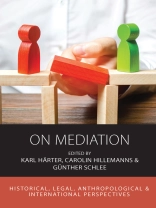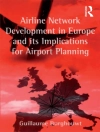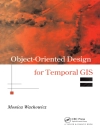Exploring mediation and related practices of conflict regulation, this book takes an interdisciplinary approach that includes historical, legal, anthropological and international perspectives. Divided into three sections, the volume observes historical and current relations between mediation and the criminal justice system and provides anthropological perspectives and case studies to explore mediation and arbitration in international arenas. In this regard, the book provides an innovative perspective on mediation and new insights into conflict regulation.
表中的内容
Introduction: On Mediation: Historical, Legal, Anthropological and International Perspectives on Alternative Modes of Conflict Regulation
Karl Härter, Carolin Hillemanns and Günther Schlee
Part I: Mediation, Arbitration and the Criminal Justice System: Historical and Current Developments
Chapter 1. Infrajudicial Modes of Conflict Regulation through Negotiation, Mediation and Arbitration in Early Modern European Criminal Justice
Karl Härter
Chapter 2. Adjudication or Negotiation. Mediation as Non-modern Element in Conflict Resolution in the Nordic Countries
Pia Letto-Vanamo
Chapter 3. Mediation, Extrajudicial Conflict Regulation and the Privatization of the Criminal Justice System
Hubert Rottleuthner
Part II: Mediation: Anthropological Perspectives and Case Studies
Chapter 4. What is Mediation? Definitions and Anthropological Discomforts
Andrea Nicolas
Chapter 5. Mediation in Circumstances of the Existential: Dispute and Justice in Rwanda
Stefanie Bognitz
Chapter 6. Mediation and Truth
Günther Schlee
Chapter 7. Crossing the Boundaries of Mediation
Keebet von Benda-Beckmann
Part III: Mediation and Arbitration in International Arenas
Chapter 8. Interstate Mediation and Arbitration: Concepts, Cases, and Actors of Third Party Dispute Resolution (17th to 19th Century)
Jakob Zollmann
Chapter 9. International Mediation and the Problem of Insincere Bargaining
Nathan Danneman and Kyle Beardsley
Chapter 10. The International Court of Justice and Mediation
Pierre D’Argent
Conclusion
Karl Härter, Carolin Hillemanns and Günther Schlee
Index
关于作者
Günther Schlee is one of the Founding Directors of the Max Planck Institute for Social Anthropology in Halle, Germany. His main publications include Identities on the Move: Clanship and Pastoralism in Northern Kenya (Manchester University Press, 1989) and How Enemies Are Made: Towards a Theory of Ethnic and Religious Conflict (Berghahn Books, 2008).












